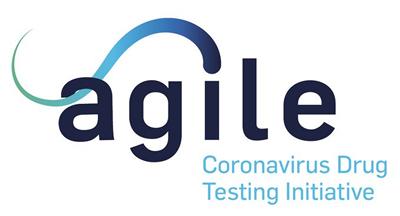
The University of Southampton's Clinical Trials Unit (SCTU) has answered the call to begin new research into treatment for COVID-19 by developing an early phase trial platform known as AGILE.
Southampton is already leading the ACCORD COVID-19 programme, a phase II trial which investigates a number of the drugs that are already used to treat other diseases and so dose and safety has already been established.
However, there is a need to create a route into platforms such as ACCORD, but for drugs that are so early in their development against specifically COVID-19 that an initial dose finding (phase I) and early signal of activity (phase IIa) are first needed to identify those which are appropriate to take forward. This is the purpose of AGILE.
Conventional evaluation of new medicines is a lengthy process, typically taking 10 years, which is too long to meet the urgent need for treating and preventing COVID-19.
AGILE has been developed from concept into a regulatory approved trial platform by SCTU in just eight 8 weeks, in partnership with colleagues at the University of Liverpool (who sponsor the trial), Liverpool School of Tropical Medicine, NIHR Liverpool and Broadgreen Clinical Research Facility and University of Lancaster, with support from colleagues such those at Cancer Research UK Centre for Drug Development, University Hospital Southampton NHS Foundation Trust and the Southampton NIHR BRC.
The initiative has received £2.2m ($2.8m) in funding from Unitaid an international organisation that invests in better ways to prevent, diagnose and treat diseases.
Led by Gareth Griffiths, Professor of Clinical Trials at the University of Southampton, SCTU quickly re-deployed its core funded Cancer Research UK and National Institute for Health Research (NIHR) staff to the programme. Their expertise was used develop an AGILE master protocol, numerous drug specific sub-protocols and an electronic date capture and consent system to establish a fit-for-purpose, regulatory compliant set-up that will enable the fast evaluation of new treatments for COVID-19.
Professor Gareth Griffiths says "We developed this early phase platform to investigate potential new COVID-19 treatments quickly to identify those that should be taken forward. The platform is not just designed to find new potential treatments of COVID-19 patients in hospital, but also treatments for patients in the community who have the disease, in the hope they will not need to go to hospital."
Saye Khoo, Professor of Molecular and Clinical Pharmacology, University of Liverpool, said: "AGILE uses the most modern and innovative statistical methods which allows for multiple drugs to be tested in parallel, and to remove or add treatments faster than ever before, based on results of safety and efficacy."
"This has the advantage of testing more treatments, more quickly, to find out which new drugs are suitable for large-scale testing in COVID-19 patients. This is similar to 'fast track' programmes for treatment of cancer patients that are approved by the UK regulator."
The AGILE clinical research trials will be taking place at the NIHR Royal Liverpool and Broadgreen Clinical Research Unit based at the Royal Liverpool University Hospital.
Professor Gareth Griffiths also adds "An aim of the platform was to also identify potential treatments that are not only effective, but affordable, so that low and middle income countries could benefit, and we are thrilled AGILE has been awarded funding by Unitaid."






